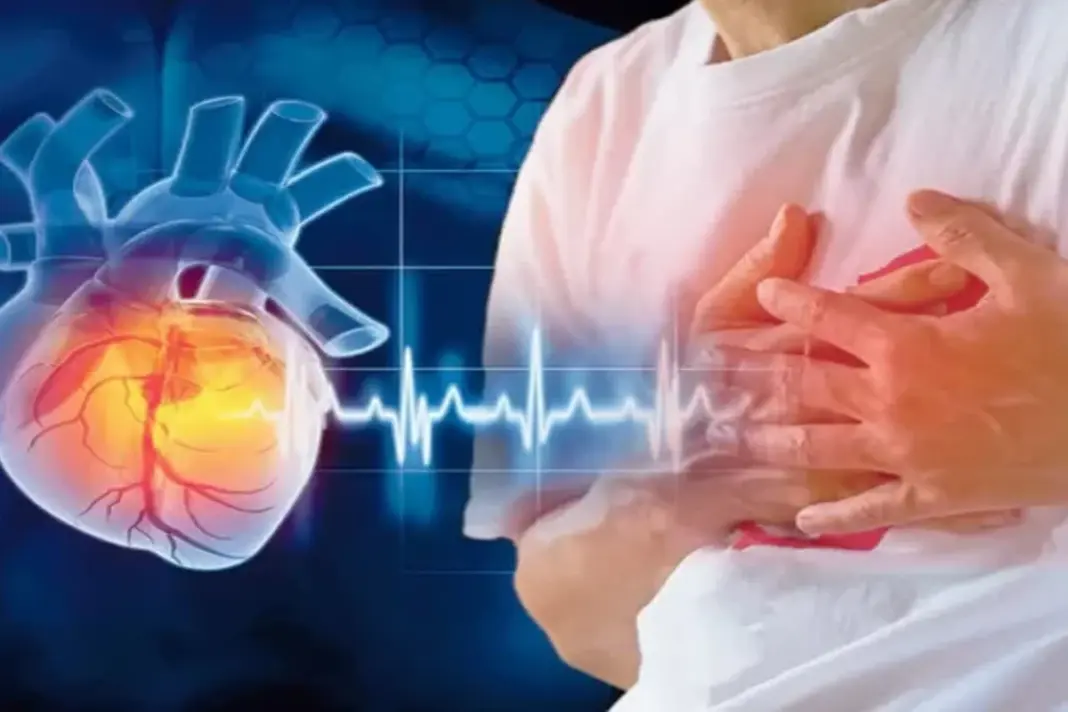Sudden cardiac death can strike unexpectedly, even in healthy individuals, due to hidden artery blockages that often show no warning signs. Experts Dr. Ashwin Mehta and Dr. Ashok Seth revealed that these silent blockages can grow up to 70% without symptoms.
Even 40% blockages can trigger fatal heart attacks under stress. Understanding why these silent killers often go unnoticed is crucial to managing heart attack risks effectively.
The Invisible Threat: Understanding Hidden Artery Blockages
Blockages in the coronary arteries build gradually, often without any symptoms, until a crisis hits. A CNBC-TV18 segment by Ekta Batra featured leading Indian cardiologists Dr. Ashwin Mehta and Dr. Ashok Seth, who highlighted how sudden cardiac death (SCD) poses a great challenge due to symptomless blockages. These blockages can grow up to 70% without causing warning signs.
Even a 40% blockage can become fatal under stress if it ruptures, causing a complete artery blockage and a heart attack.
- Symptomless blockages: Heart artery blockages can develop silently by up to 70%.
- Stress and sudden death: Physical or emotional stress can make a 40% blockage deadly by rupture.
- Expert insights: Dr. Mehta and Dr. Seth emphasize risk factors like high cholesterol, sedentary lifestyle, smoking, stress, and genetics. Symptoms often show only when it’s too late.
Sudden cardiac deaths have increasingly affected people under 50, underscoring the silent danger of hidden artery blockages.
DON'T MISS
When Stress Becomes Deadly: How Minor Blockages Turn Fatal?
Even a seemingly minor 40% artery blockage can become fatal when the body faces physical or emotional stress. Doctors Mehta and Seth explain that stress causes vulnerable blockages to rupture suddenly, quickly blocking the artery completely.
Events such as intense exercise, sudden shocks, or pre-existing heart conditions increase this risk. The heart can stop without warning, causing sudden cardiac death in moments. Recognizing how minor blockages become critical during stress helps frame why silent heart disease remains so deadly.
Warning Signs You Must Watch for Heart Attack Risk
Silent artery blockages rarely have obvious symptoms, but certain subtle signs may warn you. Mild chest discomfort, shortness of breath, unexplained fatigue, or occasional dizziness are often overlooked. Experts advise against ignoring these signs and to seek cardiology advice if they persist. Early recognition of these signals can help prevent sudden cardiac death.
- Mild chest pain or pressure needs attention
- Shortness of breath during minimal activity
- Fatigue not linked to usual tiredness
- Immediate consultation is recommended if symptoms persist
Diagnostic Tools: Catching the Silent Killers Early
Early detection is crucial to prevent sudden cardiac death from hidden artery blockages. Tests like ECG, stress tests, echocardiograms, and coronary angiograms help spot blockages before they cause harm.
Dr Mehta and Dr Seth emphasise regular screening for high-risk individuals to catch hidden heart diseases early. These diagnostic tools can identify silent blockages, guiding timely interventions and lifestyle changes to reduce heart attack risk.
Lifestyle Changes That Reduce Risks
Managing heart health reduces the danger of sudden cardiac death linked to hidden artery blockages. Experts stress a balanced diet low in cholesterol, regular exercise, stress control, and quitting smoking.
Even apparently healthy adults must prioritize regular check-ups and screenings. Realistic lifestyle changes safeguard against silent heart disease and lower the risk of sudden fatal events.
Sudden cardiac death often strikes silently through hidden artery blockages without symptoms. Early detection, recognizing subtle signs, and adopting healthy habits can greatly reduce heart attack risk and save lives.
Disclaimer: This content, including advice, provides general information only. It is not a substitute for a qualified medical opinion in any way. The methods and claims mentioned in this article should be considered as suggestions only; DNP India neither confirms nor denies them. Always consult a doctor before following any such suggestions/treatments/medications/diets.



